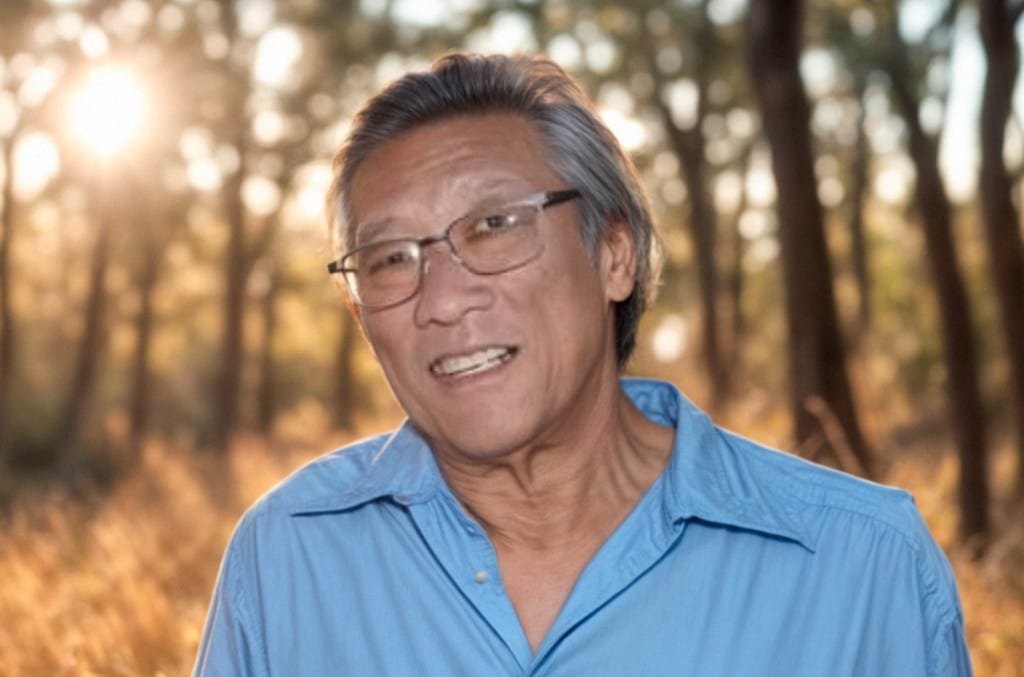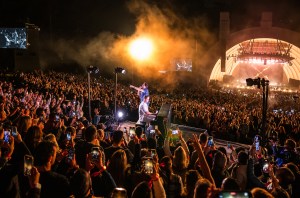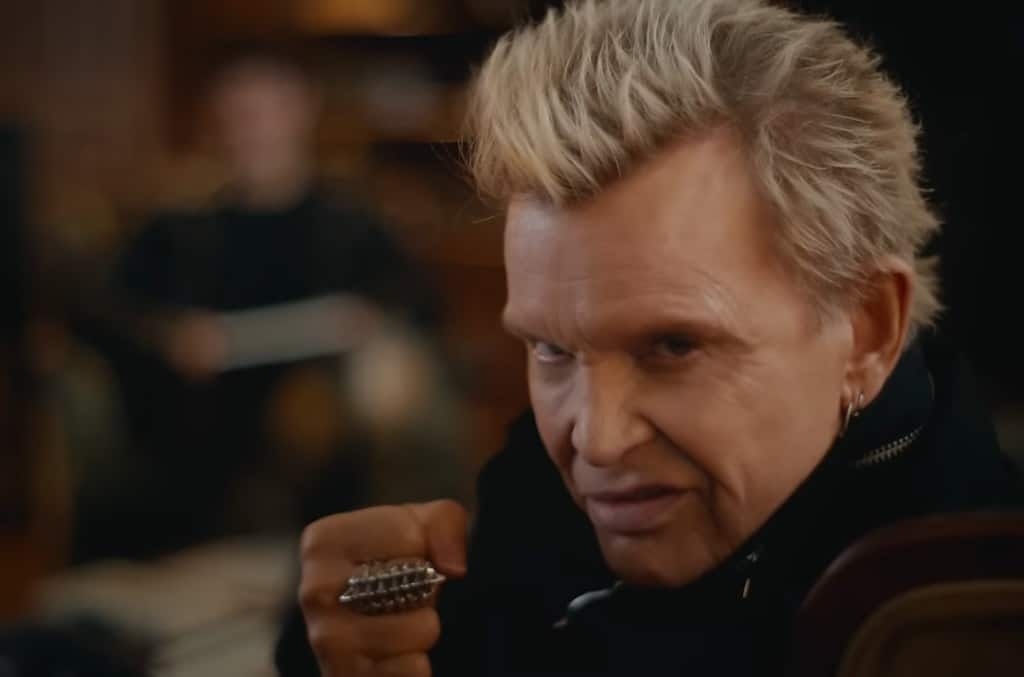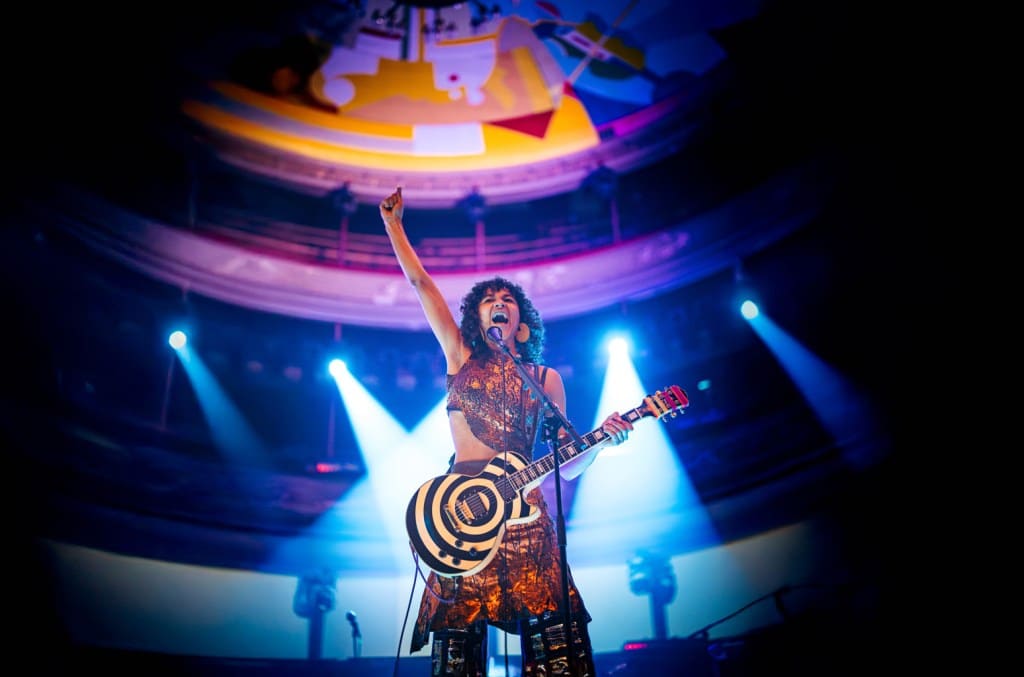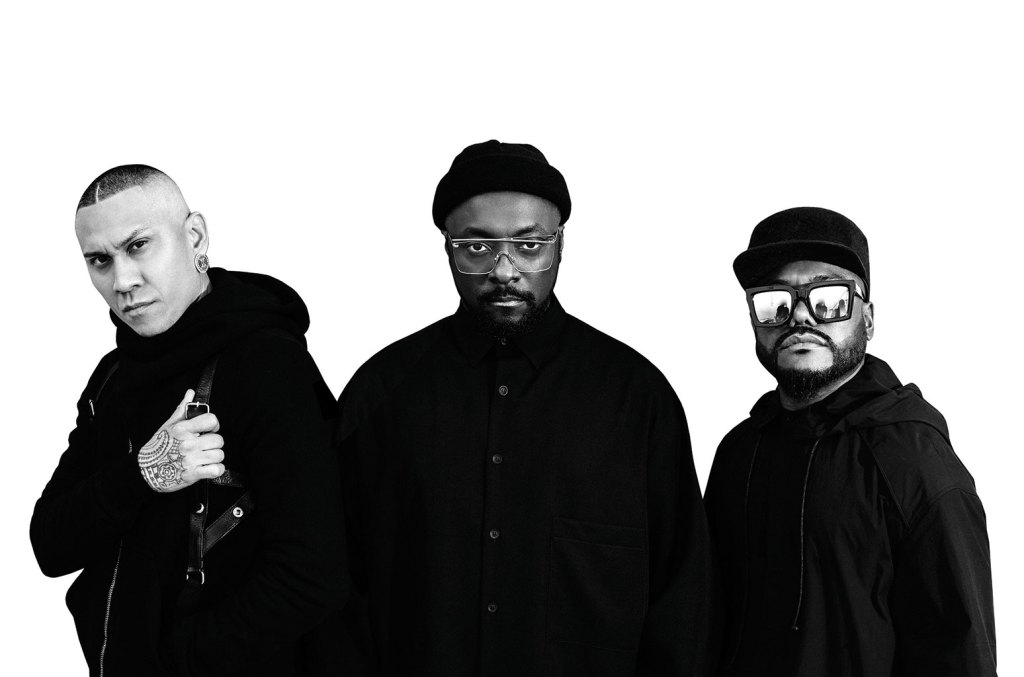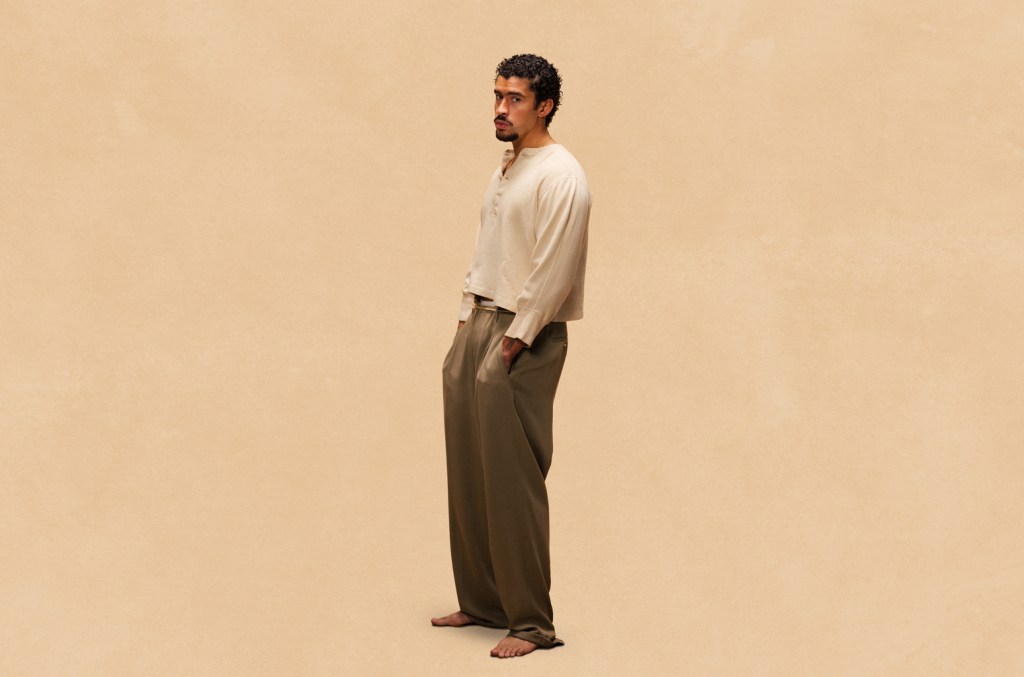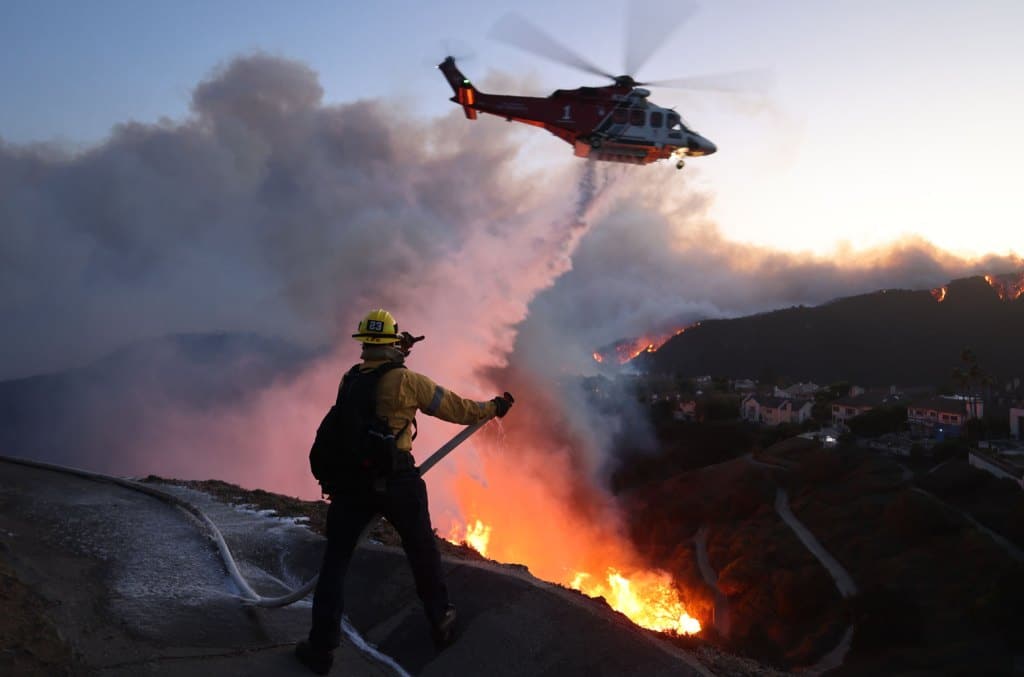Touring
Page: 36
Longtime booking agent Scott Pang passed away on Thursday (Jan. 23) after suffering from a cardiac arrest. He was 69 years old. “He loved what he did and he was always on the phone,” his son Thompson Pang tells Billboard. “He knew so many people, it was crazy.” Pang was born in Honolulu, Hawaii on […]
In the earlier days of his career, touring wasn’t necessarily Kygo‘s favorite thing to do.
“It was like every show was life or death,” says the Norwegian producer. “I was always very nervous. It was like, ‘This is the most important [thing ever], and if I mess up tonight, my career is over.’”
With this extreme self-imposed pressure, the artist “wasn’t really able to enjoy the shows that much. At one point I was like, ‘I’m probably never going to tour again,’ because it was just so exhausting.”
Flash forward to the present moment and Kygo — whose real name is Kyrre Gørvell-Dahll — has a fresh approach and attendant attitude, calling his current world tour “definitely my favorite that I’ve done so far.”
Starting last September, the 35-date tour has hit arenas and amphitheaters in North America, Europe and Central America, averaging slightly over 10,000 tickets and $838,000 in revenue per show, according to numbers reported to Billboard Boxscore. The run is continuing into 2025, with shows in Asia and Australia. Additionally, the producer plays this Thursday (Jan. 23) in Toronto and Saturday (Jan. 25) in Mexico City, where Kygo will play what he calls “the biggest show of the tour by far.” See exclusive behind the scenes footage of this tour below.
Trending on Billboard
Despite this success, Shear acknowledges that the run hasn’t made the same headlines as other recent marquee dance tours, such as Charli XCX and Troye Sivan’s 2024 Sweat Tour. “We’ve quietly been doing this unbelievable tour that’s sold over a half a million tickets,” he says. “There are a lot of tours out there. There’s a lot of stuff going on, and there’s a lot of new artists. But we’re going out there and doing the business. Kygo is just quietly winning in the dance music world.”
This current run is behind Kygo’s 2024 eponymous album, the artist’s fifth studio project that hit No. 97 on the Billboard 200 after its release last June. The tour is also his first in six years, since the run behind 2017’s Kids in Love. (Golden Hour and Thrill of the Chase came out in 2020 and 2022, respectively, although Kygo wasn’t able to tour behind them because of the pandemic.)
While the Kids in Love tour required 12 trucks to move it from city to city, this current tour requires 17 trucks and a crew of 58. When brainstorming the production, Kygo and Shear decided the music and visuals would lean into the fact that Kygo has been making music for a decade, with this kind of looking back approach inspired, Shear says, by Dead & Co.’s nostalgia-laced run at Sphere in Las Vegas last summer. As such, set lists featured visuals that nod to entirety of Kygo’s career thus far, while the setlist spans albums and hits. Vocalists including Justin Jesso, Zak Abel and Parson James are on the tour to sing their parts on “Firestone,” “Freedom” and “Stole the Show,” respectively.
“Kyrre told me that doing a tour was extremely important to him,” says Shear. “It’s not like every dance artist goes out there like a rock band or a pop star and does hard tickets in arenas or stadiums. “He was like, ‘The fact that I’m able to do it, I want to do whatever it takes to make this tour happen.’”
Kygo himself credits his ability to tour such big rooms — an option available to only a handful of dance acts including Illenium and Odesza — is a function of he and his team “not skipping any steps” while he was building his career. (Kygo is represented by Rob Markus at WME.) His earliest U.S. tour had him playing 200-700 capacity rooms, with each run getting progressively larger.
“We were living with my parents at the time, and Kyrre was staying in my brother’s room,” Shear says of these early days. “I went in my brother’s room, and was like, ‘Hey man, we found this guy who used to work with Disclosure and other big artists. He knows how to build live shows, and I think we should build one. We emptied the bank account making that show.”
This groundwork and investment has paid off, with Shear citing “the most tickets we’ve ever sold” on this current run. “I know so many people focusing on streams or on this or that, but the fans follow you as long as you do them right, take care of them and keep bringing an elevated show.”
Sometimes, this elevation requires some extra effort. The Hollywood Bowl in Los Angeles doesn’t have the space to erect a B stage where Kygo typically performs his encore. As such, the team improvised for the Oct. 17 show, setting up a riser in the middle of the amphitheater amid the seats. Getting there from the stage just meant, Kygo says, “that we just had to run a little bit.”
Kygo
Johannes Lovund
Outside the tour, Kygo and Shear’s multi-faceted Palm Tree Crew brand continues expanding. Its first brick and mortar space, the 115-room hotel and restaurant Palm Tree Club Miami, opened last December. Meanwhile, Palm Tree Festival has happened in Aspen, The Hamptons, Southern California and beyond over the last several years. Some of these festivals feature Kygo on the lineup, and some don’t.
“I was with him in Paris a few weeks ago when he was playing Accor Arena, one of the biggest shows on tour,” says Shear. “At the same time, we opened a restaurant and club in Miami the night before and we were also throwing a music festival in Australia with 30,000 people and The Chainsmokers, and Kyrre isn’t even at either of them. I think that’s a true testament to a great brand we’ve brought to the world, and one that just sort of feeds off his demeanor.”
This demeanor is one that’s also changed as Kygo has become more experienced, and over time more relaxed, about touring.
“There’s definitely been some f–k-ups on the on the road and some songs where I’m like, ‘Oh, that did not sound good at all,’” he says with a laugh. “But I think that’s just part of it being live. Knowing that, I’m more confident and better able to enjoy myself on stage and not always just nervous about everything that could go wrong.”
The South by Southwest Music Festival has announced the third round of Showcasing Artists invited to perform at the 39th annual event, March 10-15, 2025, in Austin.
The third announcement includes several powerhouse SXSW alumni like Sunflower Bean, Holy Fuck, and Jack’s Mannequin. The diverse lineup includes from chart-topping alt-reggaeton act NSQK from Mexico and energetic J-Pop boy band PSYCHIC FEVER. Everything from Latin favorites like Sofía Reyes, Amantes Del Futuro, La Cendejas and st. Pedro to acclaimed Taiwanese artists including Andr, TRASH, Amazing Show, and Enno Cheng.
Other highlights include rising hip-hop star Samara Cyn, ethereal songstress Quiet Light, award-winning musician-activist Madame Gandhi, rebel psych-rock band Frankie and the Witch Fingers, and the new project from Núria Graham and Aoife Nessa Frances called Red Stamp. Also on the lineup are multi-sensory experimental artist BLACK FONDU, ambient Thai collaborators NISATIWA X NOTEP, funk-soul seven piece brass band SNACKTIME, and Muri, a magnetic force redefining Filipino music. Japanese artists include neo-soul, city pop ensemble Luv, high energy punk-rock band ENTH, and metal band with heavy sound and light lyrics, GOKUMON (UchikubiGokumonDoukoukai).
Trending on Billboard
“The momentum continues to build with our third reveal,” said James Minor, VP of Music Festival. “Each act lends a unique and dynamic voice to the lineup, with both new and established artists from around the world creating a real sense of anticipation for the March event.”
Many of SXSW’s showcases are curated by SXSW programmers in collaboration with record labels, booking agencies, export offices, music publishers, media outlets, lifestyle brands and more. These showcases give attendees the opportunity to experience sets in exclusive, small-stage performances. A sortable airtable that contains information on each artist’s genre, publicist contact information, and social media pages can be found here.
Starting January 30th, SXSW staff will be sharing weekly artist round-ups on the official SXSW Spotify and YouTube Music Video playlists. Yesterday, SXSW announced Rock and Roll Hall of Famer and Grammy Award-winning lead singer for Creedence Clearwater Revival John Fogerty and Bluesky CEO Jay Graber as Keynote Speakers, in addition to the third round of Featured Speakers.

Bailey Zimmerman recently earned concern from music fans on social media following a shaky performance on Jan. 18 during this year’s Crash My Playa festival, held in Cancun, Mexico. Videos of Zimmerman’s performance show the singer — normally known for his energetic stage shows — seemingly having trouble reaching notes, wandering around the stage and taking a tumble at one point.
Explore
Explore
See latest videos, charts and news
See latest videos, charts and news
Now, the “Rock and A Hard Place” hitmaker is taking responsibility for his performance and asking fans for their continued support.
Trending on Billboard
Zimmerman posted a video to Instagram on Tuesday (Jan. 21), directly addressing his Crash My Playa performance.
“I was always raised up to hit my problems head-on, and never to lie, and always be truthful and honest, even when you’re embarrassed,” he started his video message. “So, I’d like to talk about something that’s been eatin’ me alive. Last weekend, down in Cancun, Mexico, I’m sure everybody’s seen the videos of me playing absolutely awful, and singing absolutely awful. And, I feel like you guys deserve an explanation from me, because you’ve had my back through the highs and lows, and through every mistake.”
He continued, “What happened was, I decided to drink that day, which was a mistake, and I got up onstage and I was too drunk to play. And I sang awful, I played awful, nobody got the show that they wanted or paid for, and I’m disappointed in myself. If you’ve been to my shows, you know how much I’ve talked about God since day one, and it was an awful representation of that. And to anybody, like I said, that’s embarrassed of me, I’m there. I’m embarrassed as well, and I’m going to do everything in my power to make sure that this never happens ever again. I want to show you guys the person that I truly am.”
He ended by saying, “So, I’m just asking for a little bit of grace. Man, growing up is interesting. It’s not an excuse, but man, thank you to everybody that’s got my back. Thank you for staying, thank you for showing me love, and grace, and we’re gonna crush this year. But yeah, I just wanted to say I’m sorry. I freakin’ love you guys more than anything in the world and I don’t wanna lose ya. Forgive me and I love ya. Thank you for listening.”
Zimmerman’s next concert is set for March 1 in West Palm Beach, Florida. He also recently revealed his 2025 summer tour dates on his New to Country Tour, with the shows launching in June.
Luke Bryan’s Crash My Playa event celebrated its ten-year anniversary in 2025, with this year’s Crash My Playa also featuring performances from Bryan as well as Jason Aldean, Kane Brown and Lainey Wilson.
To date, Zimmerman has earned four Billboard Country Airplay chart-toppers, including the six-week No. 1 “Rock and A Hard Place.” He was also nominated for the CMA’s new artist of the year honor during November’s ceremony.
See Zimmerman’s full video below:
It’s a nice day for a white mocha. British rock icon Billy Idol announced his 2025 amphitheater tour Tuesday morning (Jan. 21) with a cheeky video starring breakout comedian Matt Rife. The bit has Rife popping up through out Idol’s day, riffing on some of his Idol’s biggest songs, such as “White Wedding” and “Rebel […]
GRONINGEN — The Eurosonic Noorderslag Festival (ESNS) has long marked the official start of Europe’s music calendar. The festival, which just wrapped its 39th edition, looks to set the agenda for the upcoming year, with a particular focus on the live space.
From Jan. 15-18 in Groningen, Netherlands, a diverse lineup of emerging artists were presented to festival bookers, promoters, potential managers, media and other industry professionals. The goal: celebrate and champion artists and scenes throughout Europe and strengthen ties between markets.
At the heart of ESNS sits the The European Talent Exchange Program which promotes and assists festival bookings for the upcoming summer. By connecting 333 artists from 33 countries with 131 festival bookers and a number of stations within the European Broadcast Union (including the U.K.’s BBC Radio), the initiative aims to showcase artists from diverse regions and genres. The program has helped previous breakout artists, including Fontaines D.C., Idles, and English Teacher, secure bookings across Europe’s renowned festival circuit.
Trending on Billboard
“In today’s fast-evolving music industry, it’s increasingly difficult to uncover the hidden gems and truly exceptional acts,” said Tamás Kádár, CEO of Sziget Cultural Management, which runs Budapest’s Sziget Festival.
“With over 5,000 applicants every year, ESNS does an incredible job of curating a selection that not only supports artists in gaining recognition but also provides a vital resource for bookers like us,” he added. “Even if we can’t catch every performance live, the curated list allows us to discover new talent for Sziget. It’s a testament to the shared commitment to fostering quality music and supporting emerging talent.”
A number of acts made compelling cases during their appearances; unlike other showcase festivals, acts at ESNS only perform once at the event. Ireland’s Cardinals, signed to influential indie So Young records, brought intensity and bite to the city’s beloved Vera venue. The walls of the space are adorned with some of the names that went on to become international icons: Joy Division, The White Stripes, U2 and more all played early shows in the space.
Iceland’s Sunna Margrét expertly toed the line between folktronica and upbeat indie pop in her material, while Manchester-based Anthony Szmierek, who is due to release his debut album Service Station At The End Of The Universe in February, brought wit and humour to his rave-inspired bangers. Cork group Cliffords also drew a packed room on their debut show in mainland Europe, further solidifying the indie band place as ones to watch in 2025.
ESNS provides a boost for events like Focus Wales, a yearly showcase festival which takes place in Wrexham, north Wales. Andy Jones, co-founder and booker, says that their presence “ensures that Focus Wales and, more broadly, Wales as a music market, is part of the wider conversation with the European music community.”
He adds that the challenges facing the U.K.’s grassroots venues are impacting the ability for artists to level-up into festival headliners. “When I compare the current state of play to how things were even five or six years ago, it’s clear there’s a big problem that needs to be addressed,” said Jones. “I believe the good work Music Venue Trust is doing is vital, but it is time for Governments to do more, to ensure these vital cultural spaces are protected.”
Brexit brought immense challenges for many artists from the U.K. and significantly reduced the margins for profits. Jones is calling for “some real progress on simplifying the movement of artists in and out of the U.K., which will only reap benefits for all involved. This is also frankly, long overdue.”
Kádár concurs: “Artists face difficulties in standing out and reaching their audiences in a crowded market. Viral moments on platforms like TikTok can create sudden fame, but sustained recognition requires more. Added to this are rising costs – travel, accommodation, and the scarcity of funding – making it harder than ever for bands to tour successfully.”
The panel discussions and workshops held at Oosterport, the city’s cultural events center, covered a wide range of topics. In his keynote address, Alex Hardee, partner/agent of Wasserman Music in London, discussed the changing landscape for live agents and how they can react and respond. “We have to work harder for our commission and provide a bigger service,” he said, highlighting the company’s approach to securing new artists, as well as discussing the value of support slots and the “talent drain” that festivals are facing when booking headliners.
Throughout the program, the festival hosted additional discussions on the role of private equity investment into the live music space, the use of artificial intelligence in the creative and administrative process of making music, and how independent labels and boutique festivals can thrive in uncertain circumstances.
There were moments of celebration, too. The European Festival Awards celebrated honorees including Open’er Festival in Poland which scooped the best major festival prize and We Love Green for its commitment to making their event eco-friendly. In addition The Music Moves Europe Awards, a key component of the European Union’s efforts to support musicians, saw a number of acts secure grants of €10,000 ($10,321) including Yamê from France and Uche Yara from Austria.
ESNS may have highlighted the scale of the challenges ahead, but it’s one that Jones and his contemporaries are ready to meet head on. “I think it’s an exciting time, musically, with so much great new talent coming through. At the same time, it is encouraging that there seems to be a shared view, across Europe and including the major players in the industry, that there is a real responsibility now; for us all to create a more equitable industry going forward.”
The Black Eyed Peas have canceled their upcoming Las Vegas residency scheduled for 2025. On Sunday (Jan. 19), the group announced via their Instagram Story that their planned shows at Planet Hollywood Resort & Casino’s PH Live would no longer take place due to “current circumstances.” “To our dearest Peabodies,” the Black Eyed Peas wrote. […]
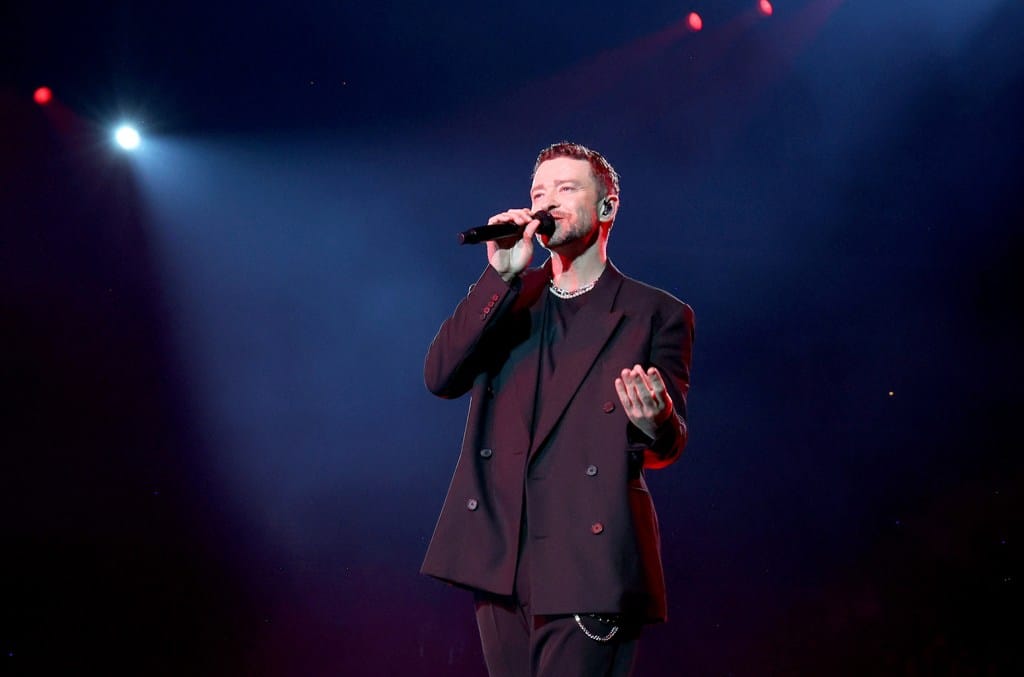
During a concert packed with wall-to-wall hits and jaw-dropping stage production, Justin Timberlake slowed things down Saturday night (Jan. 18) in Anaheim, California, to reflect on the devastating wildfires that have ravaged the neighboring Los Angeles County since last week.
“I want to take a moment to recognize what’s going on in LA,” he said from the intimate DJ stage tucked into the floor section of the Honda Center, where he was surrounded by 360 degrees of fans. “I want to give a shout-out to the first responders, firefighters, citizens of the community, all that you gave.”
He went on to acknowledge the proximity of the Orange County arena, saying, “I’m sure so many of us in this room know someone, or is related to someone, or has heard about someone so close to us being affected by this devastating incident. And so many of us onstage either live there and in the crew know people who live there, and we just came from there, and it truly is devastating.”
Trending on Billboard
Timberlake ended things on a positive note by shouting out the way the community has rallied around the crisis to find ways to help everyone affected. “I just wanted to recognize how beautiful it is, how well everyone has responded in that area. And I just wanted to say: Keep your thoughts and prayers with LA. Donate if you can — if you can — but thoughts and prayers with LA. Thank you so much, Anaheim.”
Multiple fires throughout Los Angeles County have killed at least 27 people, displaced tens of thousands from their homes, and destroyed or damaged more than 12,000 structures. The initial Palisades Fire is now more than 50% contained after more than a week of firefighting in severe winds.
Timberlake’s Anaheim concert was an extension of his Forget Tomorrow World Tour, which kicked off April 29 in Vancouver in support of the March album release Everything I Thought It Was. The trek continues Monday in Palm Desert, California, and has international dates through July. He will join Green Day and Noah Kahan to headline the 2025 BottleRock Festival in Napa, California, over Memorial Day weekend.
In collaboration with the clothing brand Maybe Tomorrow, Timberlake announced that all proceeds from a limited-edition beanie would be donated to wildfire relief efforts. The black beanie sold out, but the white version is still available here. Both are also being sold in merch stands on the tour while supplies last.
Bad Bunny‘s upcoming “No Me Quiero Ir de Aquí” summer residency at the Coliseo de Puerto Rico has officially sold out, according to a press release issued by the artist’s team on Friday (Jan. 17). Produced by Noah Assad Presents and Move Concerts, the 30-date stint, set to kick off July 11 and wrap Sept. 14, sold 400,000 tickets in just four hours through online and in-person sales across the island.
The announcement further states that while more than 2.5 million people registered for online pre-sale, Bad Bunny’s team “worked diligently” to eliminate 1.8 million scalpers and bots to “ensure Bad Bunny’s loyal fans were eligible for the pre-sale.”
The first nine shows, reserved exclusively for Puerto Rico residents, officially went on sale Wednesday (Jan. 15) at nine different locations throughout Puerto Rico, including Palacio de los Deportes in Mayagüez and Plaza del Mercado Río Piedras in San Juan. (The shows sold out that day.) Subsequently, Bad Bunny unveiled nine additional dates to the residency for a total of 30 dates at El Choli. Those 21 shows, which went on sale this morning, sold out in under four hours.
Trending on Billboard
The residency has also incorporated VIP concert and hotel experiences featuring a two-night hotel stay, premium tickets and limited edition VIP gift bags, among other elements. Offered through Vibee, more than 80,000 VIP packages have already been sold, with a limited number of VIP experiences remaining.
Bad Bunny (real name Benito Antonio Martínez Ocasio) is no stranger to selling out tours or breaking records at the box office. His World’s Hottest Tour in 2022 grossed $314.1 million and sold 1.9 million tickets, breaking the record for the biggest Latin tour ever. That same year, Bad Bunny became the first Latin act, and first act who doesn’t perform in English, to finish atop Billboard’s year-end Top Tours chart.
Bad Bunny’s residency in Puerto Rico is in honor of his latest album, Debí Tirar Más Fotos, which he released Jan. 5. The set debuted at No. 2 on the Billboard 200, securing him his seventh top 10-charting set. Meanwhile, the LP opened at No. 1 on Billboard’s Top Streaming Albums chart (dated Jan. 18), marking the largest streaming week for a Latin title in over a year. All 17 songs on the set entered the Billboard Hot 100, upping his career total from 98 to 113 and making him the first Latin artist to tally 100 career Hot 100 hits.
Live Nation’s Crew Nation nonprofit is stepping up to help music workers impacted by the Los Angeles wildfires.
The Crew Nation Global Relief Fund is committing $1 million to assist performing musicians, live music crew and live music industry workers affected by the recent wildfires in Los Angeles, it was announced Friday (Jan. 17). Live Nation established Crew Nation in 2020 in response to the COVID-19 pandemic that limited work for live event professionals.
Crew Nation has opened applications for grants up to $5,000 for individuals currently employed within the industry who are facing displacement expenses due to mandatory evacuation orders, damage or loss. Those seeking support can apply for Crew Nation Fund grants here.
“L.A. is home to so many who help make live music possible,” said Live Nation Entertainment president/CEO Michael Rapino in a statement, “and Crew Nation is continuing its core mission of helping this hardworking community through unforeseen hardship.”
In addition, Live Nation is supporting impacted employees from its Los Angeles headquarters with direct relief through its Taking Care of Our Own program.
The live industry giant is also working alongside competitor AEG and the Azoff family to produce and promote FireAid, a benefit concert set for Jan. 30 in Los Angeles. The concert will take place at both the Intuit Dome and the neighboring Kia Forum, with performers including Billie Eilish, Lady Gaga, Katy Perry, Jelly Roll, Gwen Stefani, Tate McRae, Rod Stewart, Sting, Stevie Nicks, the Red Hot Chili Peppers, Dave Matthews, John Mayer, Green Day, Gracie Abrams, Joni Mitchell, Lil Baby, P!nk, Stephen Stills and Earth, Wind & Fire, with more to be added.
FireAid will be broadcast at select AMC Theatres and via Apple Music and the Apple TV App, Max, iHeartRadio, KTLA+, Netflix/Tudum, Paramount+, SiriusXM, Spotify, SoundCloud, Veeps, YouTube, and Prime Video and the Amazon Music Channel on Twitch. Viewers will be able to contribute to the fundraiser as they watch.
Since Crew Nation’s 2020 launch, the nonprofit has helped get assistance to more than 16,000 crew globally thanks to a $10 million contribution from Live Nation, supplemented by $8 million from artists, fans and industry partners. Anyone looking to support live music artists and crews through the L.A. wildfires can donate to the organization here.

 State Champ Radio
State Champ Radio 